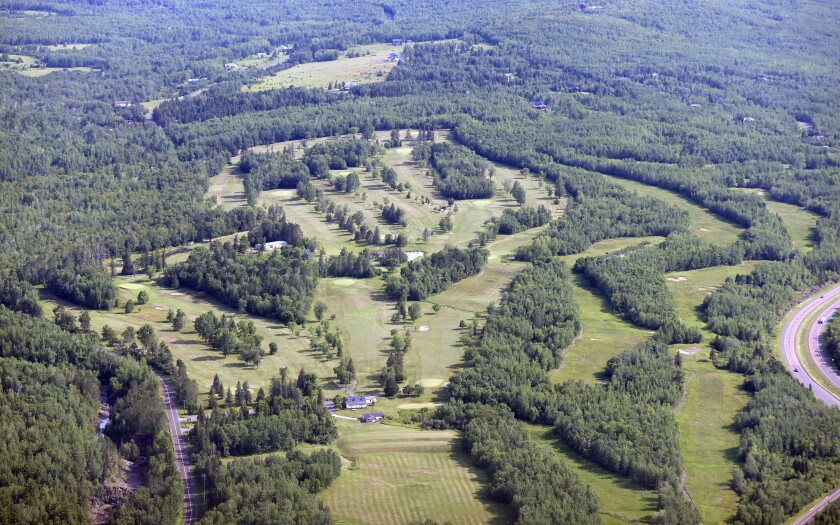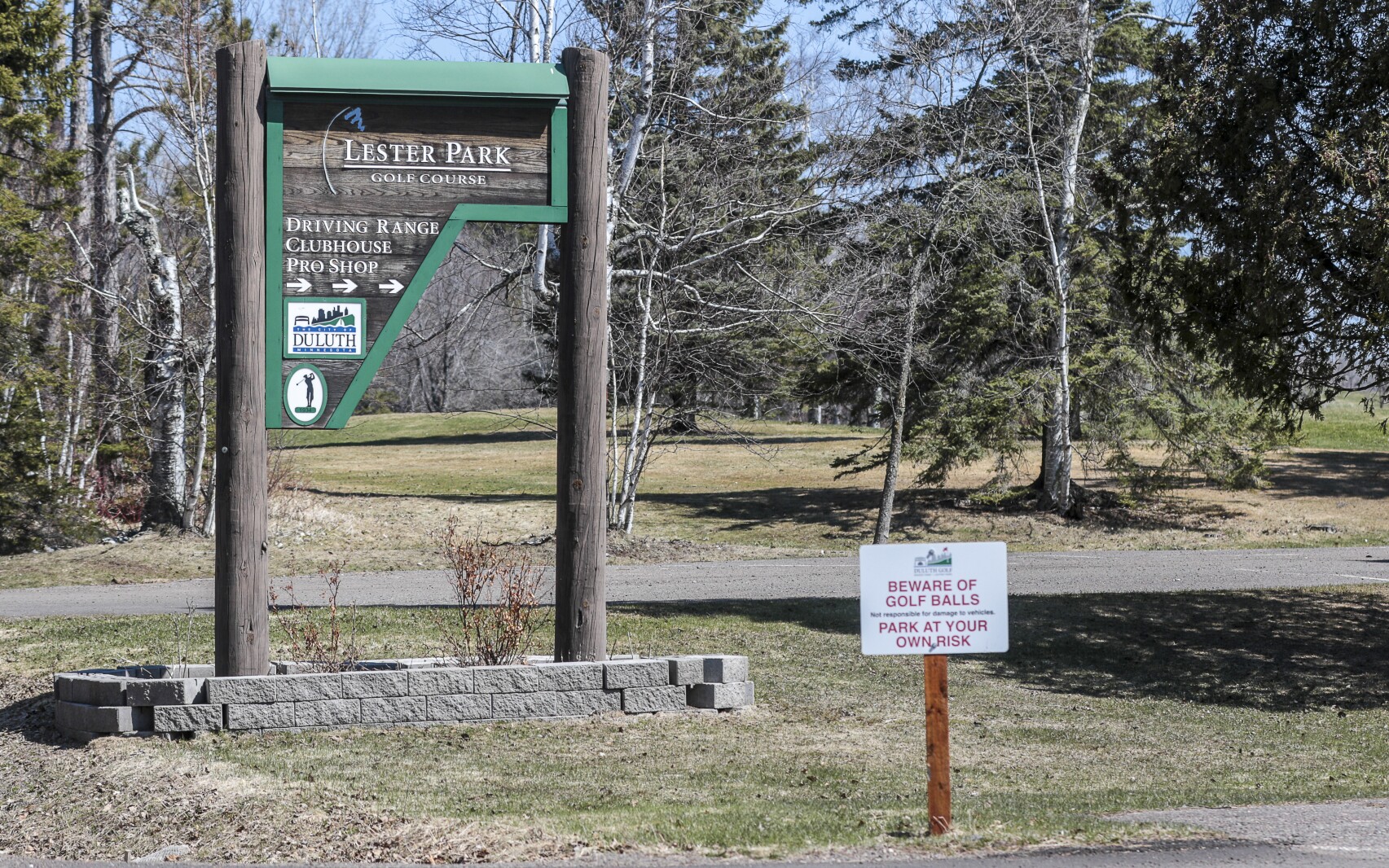DULUTH — The city’s planning commission took a major step toward opening up another 230 acres of land at the former Lester Park Golf Course to potential development Tuesday night.
While 37.5 acres of the idled municipal golf course had already been placed on the market, members of the Duluth Planning Commission were asked Tuesday to sign off on a resolution that could make much of the remaining 230 acres of land there available for reuse, as well.
At present, that larger chunk of land is zoned as parkland, and any sale would first need to receive the blessing of no fewer than seven of the planning commission’s nine members.
A special meeting was called Tuesday to consider the matter, after
a meeting earlier in the month lacked adequate attendance
to reach the needed threshold of support.
In all, eight of nine planning commission members attended Tuesday’s meeting, providing little wiggle room for dissent without nixing the possible redevelopment of the golf course property.
Rachel Johnson, executive director of Apex, an economic development proponent, noted that
a recent housing study
conducted by Maxfield Research indicated the city likely will need more than 8,000 additional units of housing within the next decade. She suggested the redevelopment of the Lester Park Golf Course property could make a significant stride toward addressing that shortage, while also adding to the local tax base.
Mayor Roger Reinert agreed and observed in a news release: “Our most promising locations for new housing at scale are the former Lester Park Golf Course, downtown, and the former Central High School site. Only one of these is owned by the city: the former Lester Park Golf Course.”

Duluth’s Lester Park Golf Course in July 2021.
Steve Kuchera / File / Duluth Media Group
After more than five years of community debate since the golf course’s closure, Johnson said: “We can continue to fight while the property continues to fall into disrepair, or we can follow the City Council’s leadership by putting aside our differences.”
Johnson referenced
the City Council’s unanimous decision the prior night
to support a land-use study that could set the stage for the sale of more land at the former golf course.
Speaking of that vote, 1st District Councilor Wendy Durrwachter, who represents Lester Park and the city’s easternmost neighborhoods, expressed her support for a nine-month study that would bring all stakeholders to the table as the city discusses the future of the course.
But she also made it clear that support should not be construed as a green light to proceed with any transfer of the property to the Duluth Economic Development Authority for possible future sale, as proposed. DEDA has already been working to market a 37.5-acre parcel of the former golf course identified as a prime candidate for residential development.
“I am of the opinion that the outcome of the land-use study should be determined before anyone decides what to do with the land, whether to convey it to DEDA with the HRA, or a portion of it,” Durrwachter said.
Several planning commission members also expressed misgivings about prematurely agreeing to transfer control of the property to DEDA prior to the outcome of the land-use study.
Ultimately, commissioners offered a series of amendments to make any conveyance of the property contingent upon those being in accord with the recommendations of the land-use plan. But with those provisions in place, the resolution passed 8-0 Tuesday.
Following the meeting, Ben Van Tassel, director of Duluth’s planning and economic development department, said he was encouraged by the Planning Commission’s decision.
“This initiates the process,” he said, while also acknowledging that staff will need to take the latest changes into account in crafting proposed development agreements for both the City Council and DEDA.
“The community has looked at this area for a long time, and this starts moving us toward envisioning what’s possible at the site and then starting to make that happen,” Van Tassel said.
Reinert suggested Duluth can ill afford to squander the opportunity.
“With over 250 acres at Lester, we can do this while also meeting our goals for green space preservation and additional outdoor recreation opportunities,” he said. “Lester cannot continue to sit and deteriorate. It dishonors both the legacy of Lester, and its potential.”

Peter Passi covers city and county government for the Duluth News Tribune. He joined the paper in April 2000, initially as a business reporter but has worked a number of beats through the years.







